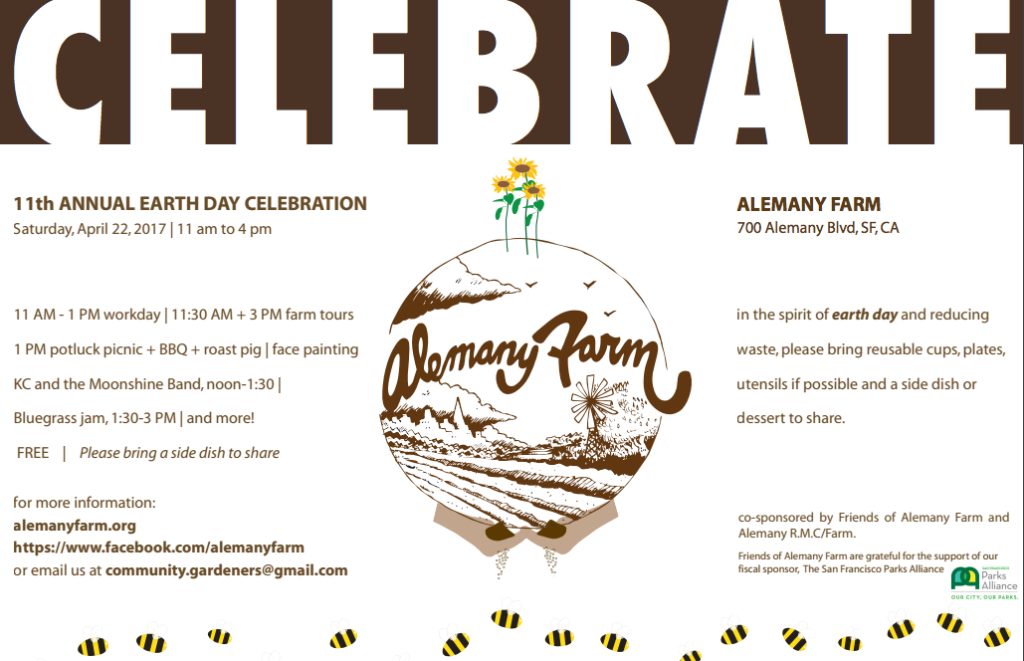“In the spirit of earth day bring reusable cups…” but let’s go ahead and roast a pig.
When Seed the Commons organized the first People’s Harvest Forum, I invited one of the founders of Alemany Farm to come speak about land and urban gardening in San Francisco. I explained that this was a forum that promoted veganic farming, and he was ok with veganics as long as it isn’t promoted exclusively, or in his own words, as long as it was “without dogma”.
Compassion is such a very dogmatic thing, of course. No, wait, it’s only dogmatic when it’s the compassion of the minority. The compassion that the majority has for dogs and cats is not seen as “dogmatic” (even though the majority second-guesses themselves much less). When vegans apply our ethics to our actions in the very same way that the majority does, we get dismissed as dogmatic.
This is a double standard that serves to insult us and to detract from the challenge that we present to dominant social norms. Because the question that needs to be answered is this: why should we treat a cow or pig differently than a dog? If there is no good answer to this question, it follows that we should farm veganically, and it is no more dogmatic than farming without dogs or cats. To maintain the status quo of animal commodification, the question is skirted.
We must liberate the class of animals known as “farm animals”. People will resist and insult and try to avoid ever engaging in a discussion on why farm animals are uniquely suited to their lot. This is normal. We are fighting to change social norms, and it’s always an arduous task. Humans protect the status quo and especially their own privilege. Those who farm, roast or eat pigs want to protect their entitlement to pigs’ lives and bodies, and all the better if they can be self-congratulatory about it. At Alemany Farm, they justify their celebration of domination with the trope of the “circle of life”, but nobody uses this argument to justify cruelty to animals that are deemed to matter.
All of these clichés – “the circle of life”, the rejection of dogma, the wisdom of moderation – have the veneer of sophistication, but they simply provide a knee-jerk defense of the way things are. I grew up in Switzerland, land of the middle ground. Rejecting “extremes” and lauding moderation is a national pastime. It’s not enlightenment, it’s conservatism. When people urge for moderation, they conveniently draw the contours of that moderation around what is normal to them. But if we persevere, veganism and veganic farming will become the new normal.
I’ve heard people – especially vegans – moan that vegans aren’t active enough around the political or social justice issues of our food system. I knew a vegan who used to volunteer at Alemany Farm and who left because every year they would roast the dead body of a sentient, intelligent, sensitive being. We should not have to betray our ethics to be able to engage in important community activism.
As vegans, we must set up our own urban and community gardens. Urban agriculture is too important for us to hold back until we achieve widespread animal liberation. Let’s reclaim the streets, grow our own food systems with a vegan ethic, and help build up a genuine people’s movement for land reform and a better world.

